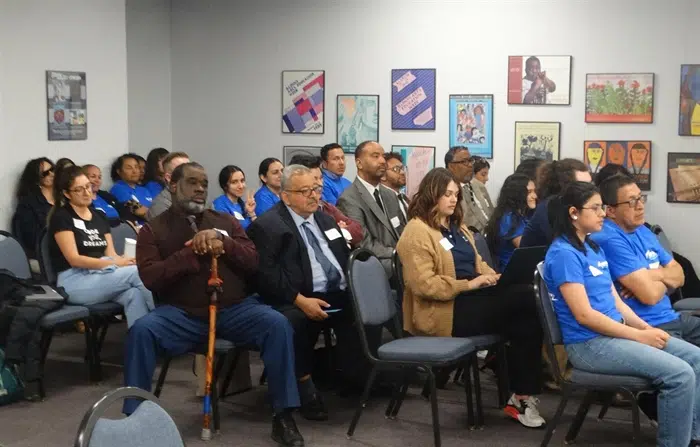Programs serve thousands of students in low-performing and high-poverty schools
By PETER HANCOCKCapitol News Illinoisphancock@capitolnewsillinois.com
SPRINGFIELD – Thousands of elementary and high school students throughout Illinois could lose access to after-school and summer programs in the upcoming fiscal year but advocates are hoping that either the General Assembly or the federal government can keep that from happening.
The programs, known as 21st Century Community Learning Centers, are a federally funded through program administered by the Illinois State Board of Education that targets students in low-performing and high-poverty schools.
Many of the programs offer academic enrichment activities to help students meet state and local academic standards. They also offer literacy and other educational services to the families of students enrolled in the programs.
“Many of these students have child care responsibilities for younger siblings, mental health concerns, and are victims of domestic violence, just to name a few,” said Kimberly David, associate director for Project Success of Vermilion County. “The relationships that our staff build with these students to help ensure that they stay the course and finish high school are very important. Several of our students have utilized our program time to apply for college and jobs with the encouragement of our staff.”
David was among several people who turned out Wednesday for ISBE’s monthly board meeting in Springfield urging the board to ask the General Assembly to cover a funding gap that is estimated at $15 million by ISBE.
ISBE spokeswoman Jackie Matthews said the funding gap is the result of a miscalculation the agency made when it tried to estimate how much federal money would be available next year.
Each year, she said, ISBE awards grants to school districts and other community-based organizations that provide after-school, before-school and summer programming. The grants typically run for five years and at the end of that period, they can either be renewed or the recipient can apply again through a competitive selection process.
Under federal rules, recipients generally are not allowed to carry over unspent funds from one year to the next. But those rules were relaxed during the COVID-19 pandemic when schools were forced to close and no services were being provided.
Matthews said agency officials were unable to accurately estimate the impact that rule change would have and, as a result, it made commitments to distribute more funds in the upcoming fiscal year than will actually be available.
ISBE only discovered the error recently and, on April 10, it notified organizations whose grants expire at the end of this fiscal year that their grants will not be renewed and there will not be a new grant competition for them to enter.
“We recognize the late timing of this communication and ISBE’s error in not appropriately forecasting grant funding,” the agency said in the notification letter. “We are committed to providing earlier notice going forward, so that grantees have ample time to plan and prepare for the conclusion of the grant cycle.”
The advocacy group ACT Now Illinois, a coalition of after-school service providers, estimates that 12,000 students will lose access to programs as a result while roughly 550 after-school staff members will lose their jobs.
Teresa Dothard-Campbell, who runs a program for middle school students in East Moline School District 37, said her program will not be directly affected this year but she has heard from colleagues at other sites who are being affected.
“And I can tell you that it was very disheartening last week to sit around a table and to hear about the impact that not being able to be funded was going to have on the students in our community,” she said. “In my program alone, we serve 475 students out of a student population of 1,100 students. We offer over 22 after-school clubs or before-school clubs. And we are enriched with bringing in community partners as well to be able to provide those experiences.”
Advocates urged ISBE to seek additional funding through the General Assembly to prevent the programs whose grants are expiring from closing. But Matthews said the agency currently does not intend to do that. Instead, it is asking the federal government for permission to use pandemic relief funds to cover the amount that was over-allocated for next year.
Capitol News Illinois is a nonprofit, nonpartisan news service covering state government. It is distributed to hundreds of newspapers, radio and TV stations statewide. It is funded primarily by the Illinois Press Foundation and the Robert R. McCormick Foundation, along with major contributions from the Illinois Broadcasters Foundation and Southern Illinois Editorial Association.


